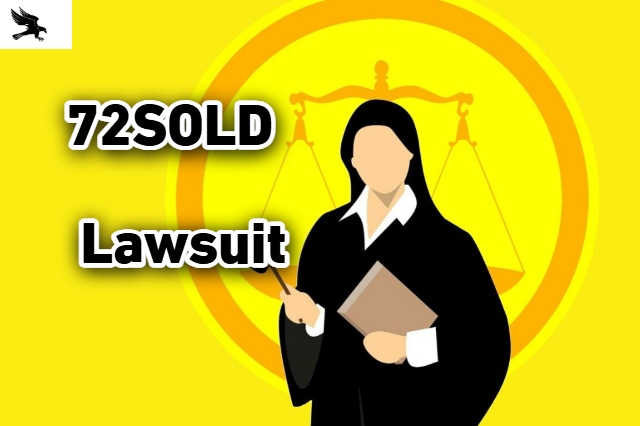72SOLD Lawsuit has been generating attention in the past few years with its different approach to selling houses quickly. The company markets itself through claims that it sells a house within 72 hours, but the business model has caused controversy. In spite of some positive responses from customers towards 72SOLD, others reacted negatively towards the service with actual outcome. Besides the customer complaints, lawsuits and other legal issues are also coming to light, bringing more attention to the service. This all-inclusive guide will cover the 72SOLD lawsuit, the working of the service, and alternative options for home sellers who want to sell their property.
What is 72SOLD?
72SOLD is a service of real estate that markets homes to be sold within a short period of 72 hours. Its strategy in selling the home will be to create a time limit for viewings and offers, and it will encourage competitive bidding as a result of this approach. This will create higher demand on the properties and encourage sales since it would make it look exclusive and hence encouraging sales.
This process includes an online form that will be filled out by homeowners and provide information about the property and selling situation. This is then submitted and subsequently assigned to an agent of 72SOLD who will list and market the property, post it on MLS, and generate buyer interest usually with showings over the weekend. The interested buyers usually submit offers on Monday, and the idea here is to have the house under contract quickly.
This model has actually worked in some hot real estate markets, though it has also drawn a number of criticisms and challenges. As the market shifts, especially as the real estate activity cools down in some areas, the old strategy of 72SOLD is no longer very effective and has led to customer dissatisfaction and legal problems.
72SOLD Lawsuit: All You Need to Know
As the 72SOLD it grew in popularity within the real estate industry, many of the complaints from the unsatisfied customers have been the basis for the lawsuits, which include lawsuits. Additionally, some of the homeowners who have had to avail of the service have also filed lawsuits against the company, claiming that they were misled or not given the results they were promised. However, the details of the each lawsuit may differ, but common themes and concerns have arisen;
1. Houses Not Sold in 72 hours
The best-selling proposition in the campaign of 72SOLD was that the homes are sold in a hurry. However, some home sellers maintain that this promise was not met. They claim their houses remained unsold for weeks and even for months. In some instances, houses were sold for very low prices, which is less than what they expected the houses to sell against.
2. Misrepresentative advertisement
72SOLD aggressive advertising style in terms of selling properties rapidly at high competition is misleading for some of its clients. Some of them claimed to have been misinformed by the company’s ads, which advertised their sale as quick and easy profitable sales that did not highlight the risks and complications one faces along the way. Selling my house through 72SOLD was not that easy as it was indicated by adverts.
3. Hidden Fees and Additional Charges
On the other hand, lawsuits filed against 72SOLD also involve the issue of hidden fees and additional charges. Even though the company is marketed as a low-cost alternative to traditional real estate agents, customers complained about hidden fees that were not disclosed upfront. This may include marketing costs, agent commission rates, and other charges that reduced the profit from the sale.
4. Vague Terms of the Contract
Most of the complaints are on the terms of the contracts entered between the homeowners and 72SOLD. Some even say that the terms were vague and that they did not understand their rights and liabilities. In some cases, the contracts have been said to be too complicated and confusing such that after selling the houses, the homeowners get confused and unsatisfied.
How 72SOLD Works: A Look Inside
A priori, and before going into the possibilities, some understanding is necessary on how 72SOLD operates and where its model falters at times.
Online form filling Home sellers interested in the company’s 72SOLD concept start by filling out an online form, which allows them to give information on the house and the selling circumstances. This is mainly to gauge the value of the house and whether or not it qualifies for quick sale according to the set criteria.
Listing and Marketing the Property Once a homeowner is on board, an agent is assigned to list the property and market it using the 72SOLD strategy. The listing is posted on the MLS and marketed to potential buyers, with the goal of generating interest and encouraging competitive offers. The timeline is compressed, with most showings happening over a weekend.
72SOLD will set a deadline for the receipt of offers usually by Monday at 5 p.m. This is to give a sense of urgency so that the buyers may hasten to decide on whether to purchase or not. Competition is then created among the buyers who make offers. After offers are received, the best one can be selected, or further negotiations can be made.
Closing the Sale The conventional closing timeline is used from the actual closing process onwards, which may take as long as 45 to 60 days or longer. Thus, some homeowners are disappointed because they expected something to happen sooner rather than later, then end up with a home longer than they wanted.
Alternatives to 72SOLD
With concerns about 72SOLD and the business model, there will always be alternative options to look for quicker, more reliable, or higher-priced sales. Some of the alternatives include:
1. Cash Home Buyers
However, to those who want their home sold the soonest, these cash home buyers with a guarantee of a fast cash solution have the answer. For some of them, they will agree to buy those homes as is but would close the deal in a matter of weeks. But this still poses a problem because usually, the cash home buyers have less competitive offers since these properties are acquired with an idea of reselling later on for profit.
2. Low Commission Traditional Realtors
If the maximum the sale price is the priority, working with the traditional real estate agent may be the best option. Many of the agents offer competitive commission rates, often lower than the industry standard, will which can help reduce the overall costs of selling. These agents can also provide more personalized service and may be able to secure a higher price through strategic marketing.
3. iBuyers (Instant Buyers)
iBuyers, such as Opendoor and Offerpad, give quick, cash-based offers on homes in good condition. These companies rely on algorithms to determine property value, which can generate offers near instantly. Though the offer might not be as high as you would get selling traditionally, iBuyers can provide a more convenient, faster option.
4. Selling by Yourself
Always Save agent commissions by selling it yourself using a service such as FSBO, for sale by the owner. Selling to your home yourself saves a lot of money but at the cost of your hard work in marketing and the negotiation, and paperwork. That’s for homeowners who understand the real estate market feel comfortable with handling things on their own, and have the time and will to do so.
Conclusion
While 72SOLD has been efficient for some home sellers, selling their houses quickly and without much hassle, this business model is not that suitable for every customer in many cases. The lawsuits and complaints on the increase reveal growing discontent with their claims of selling houses very fast and for high values. Home sellers should weigh both pros and cons and look into alternative options before hiring the 72SOLD service and should have clear knowledge about costs involved. More often than not, looking at alternatives will bring more success to a sale.

